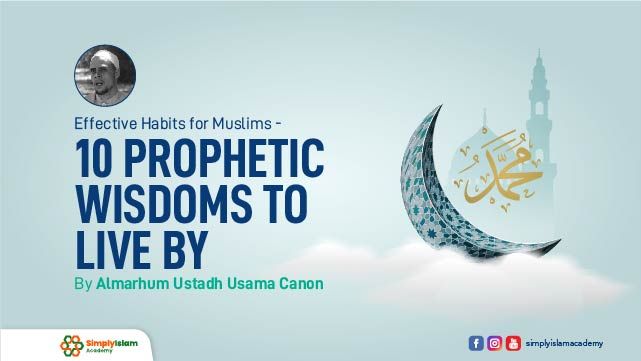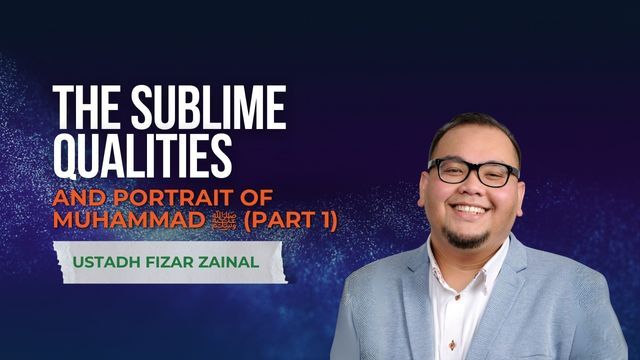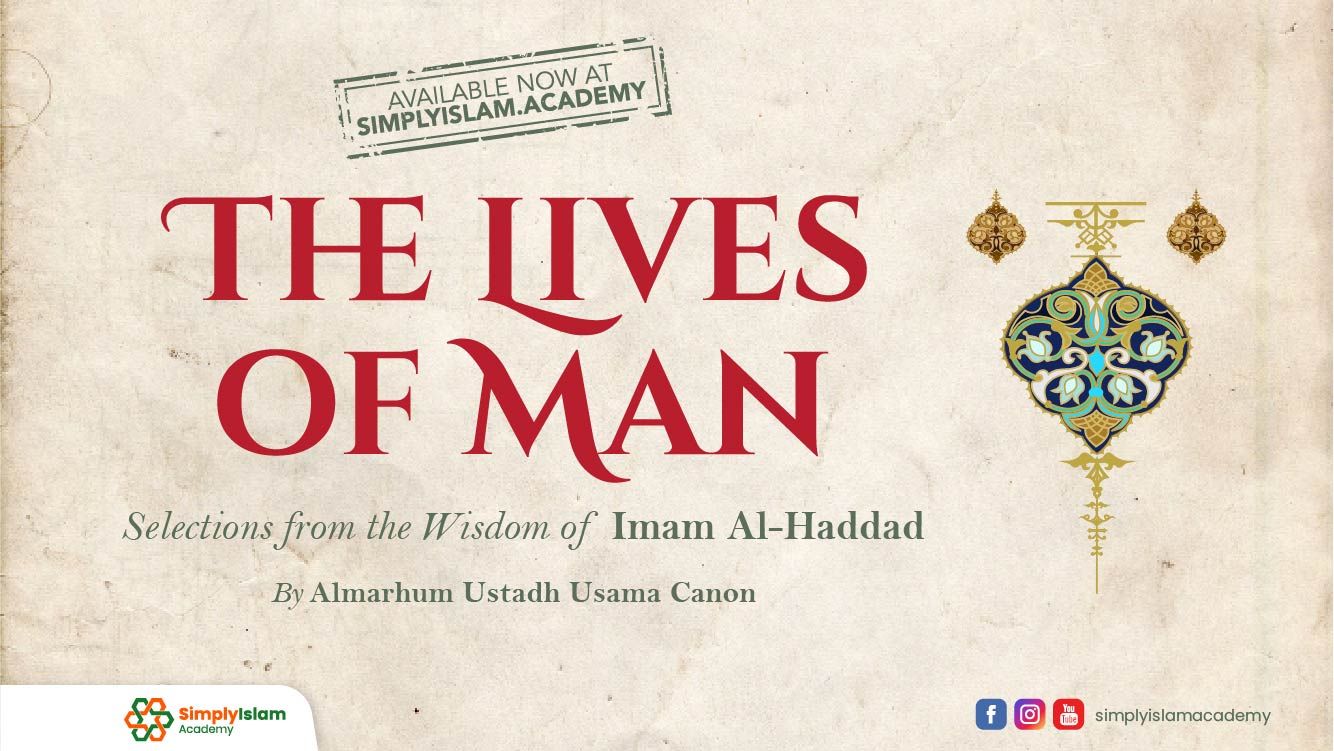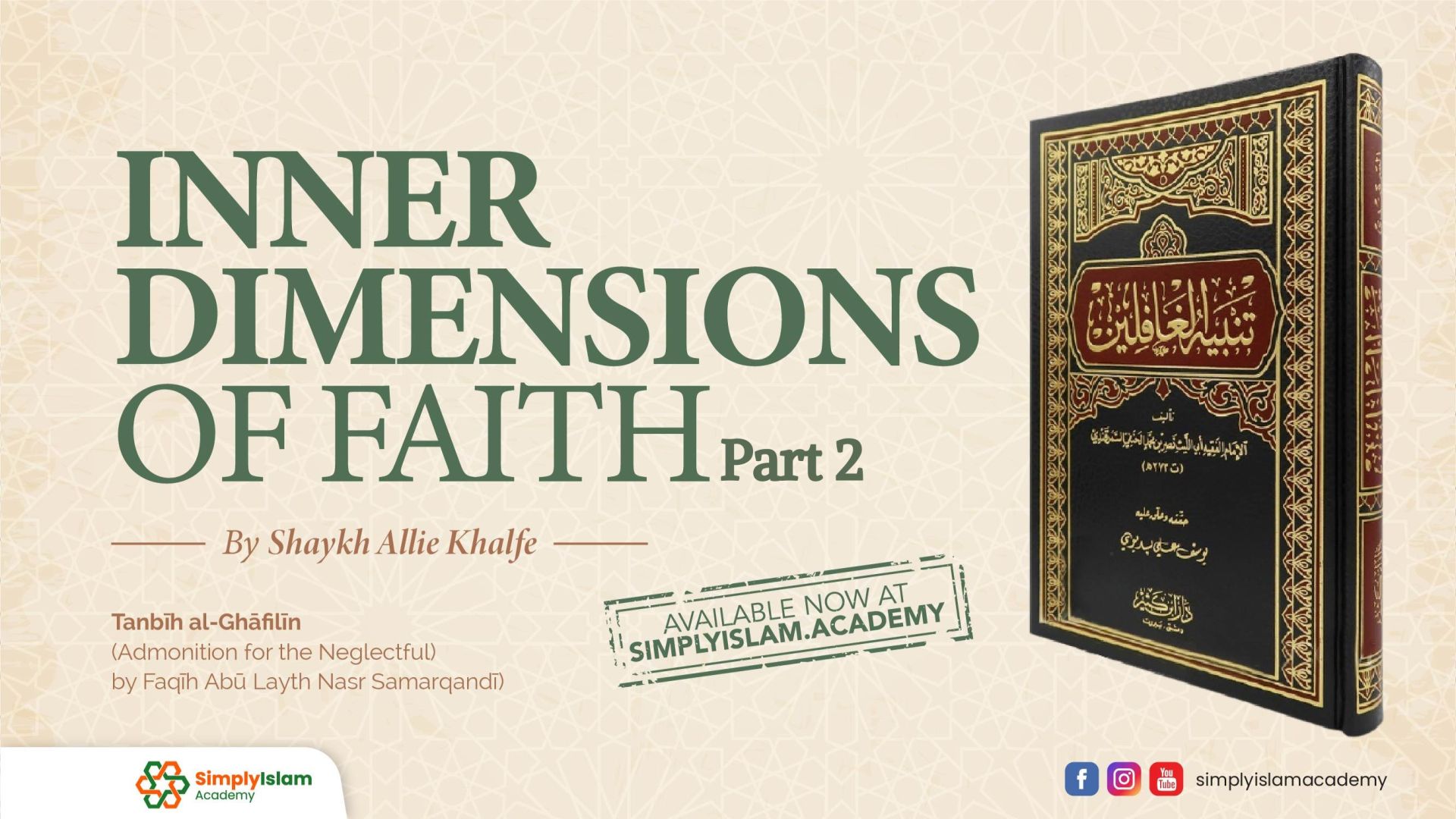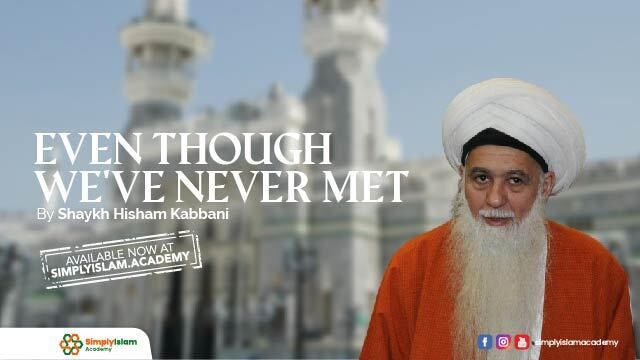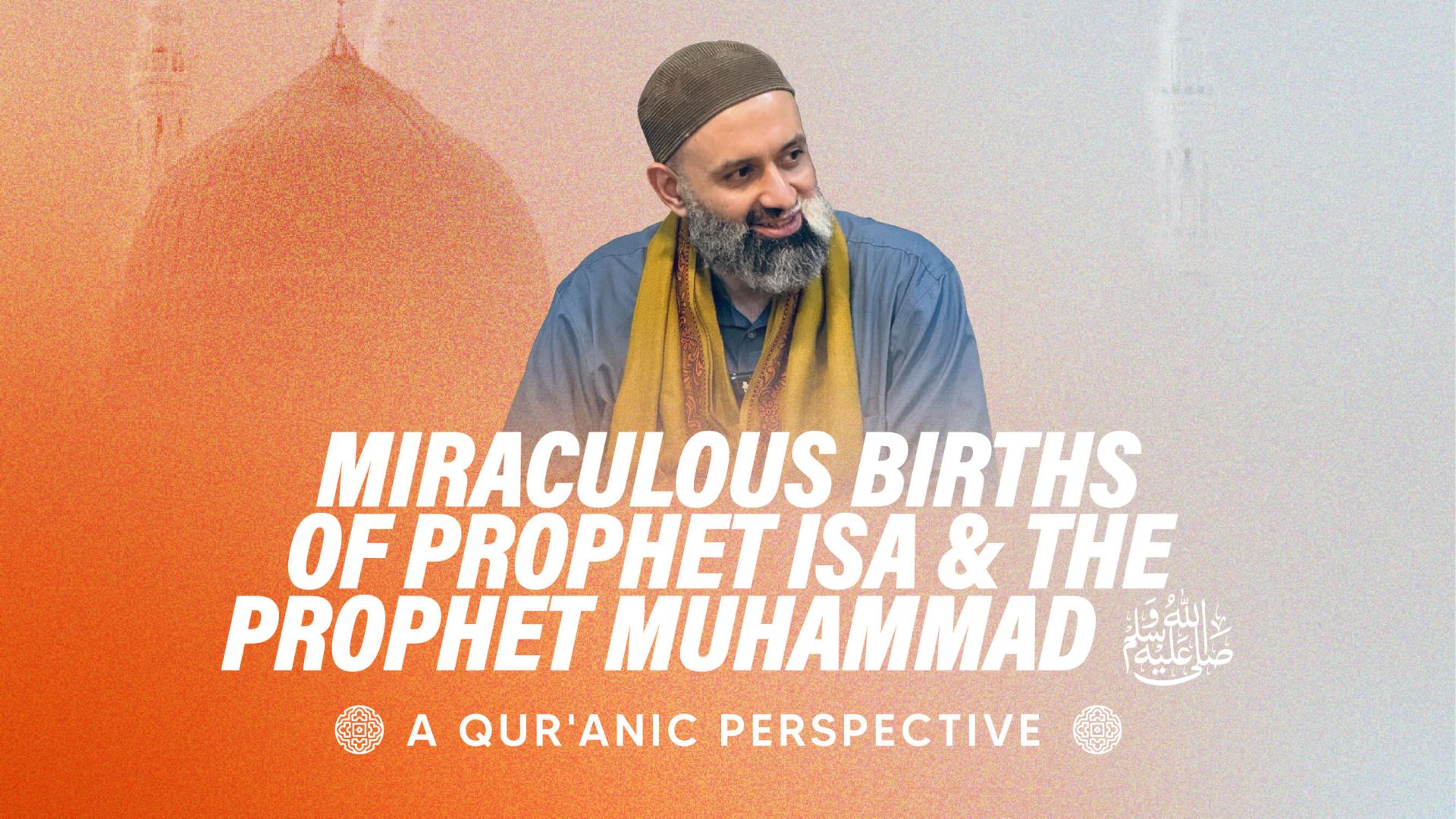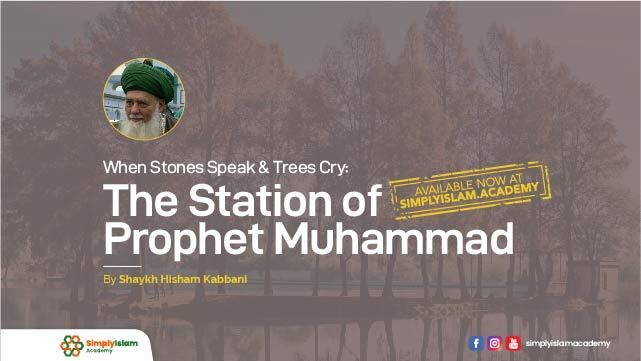Common Charateristics of Prophets in Islam
-
Fatima Sajid
-
27 Oct 2021
Human beings have populated and colonized Earth since the advent of Adam peace be upon him from the heavens to the Earth. Throughout the times, Divine revelations have been the source of guidance for men to lead their lives according to the will of the Creator. The role played by the prophets in conveying the correct message without any addition or subtraction has been of great relevance in the cause. Let’s learn how we can live our lives guided by the characteristics of Prophets in Islam.
Allah Almighty mentions in the Qur’an:
ثُمَّ أَرْسَلْنَا رُسُلَنَا تَتْرَا كُلَّ مَا جَاءَ أُمَّةً رَسُولُهَا كَذَّبُوهُ فَأَتْبَعْنَا بَعْضَهُمْ بَعْضاً وَجَعَلْنَاهُمْ أَحَادِيثَ فَبُعْداً لِقَوْمٍ لا يُؤْمِنُونَ
"and We sent Our messengers in succession: whenever a messenger came to a community they invariably called him a liar, so We destroyed them one after the other and made them into cautionary tales. Away with the disbelievers!" (Qur'an 23:44)
Allah Almighty also says in surah Fatir, ayah 24
إِنَّا أَرْسَلْنَاكَ بِالْحَقِّ بَشِيراً وَنَذِيراً وَإِنْ مِنْ أُمَّةٍ إِلَّا خَلا فِيهَا نَذِيرٌ
"We have sent you with the Truth as a bearer of good news and warning– every community has been sent a warner." (Qur'an 35:24)
Prophets Mentioned in Qur’an
All the prophets in Islam have been mentioned numerous times in the Qur’an and their stories with their people provide a great source of knowledge and reflection for the Muslims.
إِنَّا أَوْحَيْنَا إِلَيْكَ كَمَا أَوْحَيْنَا إِلَى نُوحٍ وَالنَّبِيِّينَ مِنْ بَعْدِهِ وَأَوْحَيْنَا إِلَى إِبْرَاهِيمَ وَإِسْمَاعِيلَ وَإِسْحَاقَ وَيَعْقُوبَ وَالْأَسْبَاطِ وَعِيسَى وَأَيُّوبَ وَيُونُسَ وَهَارُونَ وَسُلَيْمَانَ وَآَتَيْنَا دَاوُودَ زَبُورًا . وَرُسُلًا قَدْ قَصَصْنَاهُمْ عَلَيْكَ مِنْ قَبْلُ وَرُسُلًا لَمْ نَقْصُصْهُمْ عَلَيْكَ وَكَلَّمَ اللَّهُ مُوسَى تَكْلِيمًا
“We have sent revelation to you [Prophet] as We did to Noah and the prophets after him, to Abraham, Ishmael, Isaac, Jacob, and the Tribes, to Jesus, Job, Jonah, Aaron, and Solomon- to David We gave the book [of Psalms]- to other messengers We have already mentioned to you, and also to some We have not. To Moses God spoke directly.” (Qur’an 4:163-164)
All prophets in Islam came with the message of Tawhid (Oneness of God). It was only a difference in the Shariah (commandments and laws) of each Divine religion that set it apart from the others. It should be noted that all prophets propagated the same message of Islam throughout all ages, Tawhid, which is the core of all Divine religions. Allah Almighty mentions in the Qur’an:
وَلَقَدْ بَعَثْنَا فِي كُلِّ أُمَّةٍ رَسُولًا أَنِ اعْبُدُوا اللَّهَ وَاجْتَنِبُوا الطَّاغُوتَ
“We sent a messenger to every community, saying, ‘Worship God and shun false gods.’”(Qur’an 16:36)
Miracles of The Prophets
Allah Almighty aided His messengers with miracles to help their people believe in the message of Oneness of God. Prophethood in Islam involves experiencing miracles gifted by Allah the Almighty. Some of the miracles mentioned in the Qur’an are those of Musa, ‘Isa, Ibrahim, Saleh, Sulaiman and Muhammad, Peace and Blessings be upon them all. Musa peace be upon him was sent to Bani Israel; a nation notorious for its magical practices. Allah Almighty gifted Musa peace be upon him with miracles that made Bani Israel believe the magic they did was falsehood. Allah Almighty mentions in the Qur’an:
وَمَا تِلْكَ بِيَمِينِكَ يَا مُوسَى* قَالَ هِيَ عَصَايَ أَتَوَكَّأُ عَلَيْهَا وَأَهُشُّ بِهَا عَلَى غَنَمِي وَلِيَ فِيهَا مَآرِبُ أُخْرَى* قَالَ أَلْقِهَا يَا مُوسَى* فَأَلْقَاهَا فَإِذَا هِيَ حَيَّةٌ تَسْعَى* قَالَ خُذْهَا وَلَا تَخَفْ سَنُعِيدُهَا سِيرَتَهَا الْأُولَى
“‘Moses, what is that in your right hand?’‘It is my staff,’ he said, ‘I lean on it; restrain my sheep with it; I also have other uses for it.’God said, ‘Throw it down, Moses.’ He threw it down and- lo and behold!- it became a fast-moving snake. He said, ‘Pick it up without fear: We shall turn it back into its former state.”(Qur’an 20: 17-21)
It was with this stick that Musa peace be upon him fought the corrupt magicians and emerged victorious. The incident has been mentioned in great detail in the Qur’an more than once. Musa peace be upon him was also gifted with other miracles.
The miracle of Prophet Muhammad ﷺ is the Qur’an. Arabs of the age of ignorance took great interest in poetry and were well versed with the usage of Arabic language principles in their poetry. Revelation of the Qur’an shook them. They wholeheartedly accepted that such beautiful verses couldn’t be the work of a man. Allah Almighty challenged the Arabs to bring a book like the Qur’an in the following ayah:
قُلْ لَئِنِ اجْتَمَعَتِ الْإِنْسُ وَالْجِنُّ عَلَى أَنْ يَأْتُوا بِمِثْلِ هَذَا الْقُرْآنِ لَا يَأْتُونَ بِمِثْلِهِ وَلَوْ كَانَ بَعْضُهُمْ لِبَعْضٍ ظَهِيرًا
“Say, ‘Even if all mankind and jinn came together to produce something like this Quran, they could not produce anything like it, however much they helped each other.’" (Qur’an 17:88)
Ar-Rasul and An-Nabi الرسول والنبي
Before diving into the depths of learning more about the prophets, it’s important that we define the terms رسول (Rasul) and نبي (Nabi). While the term prophet is commonly used in the English language, Arabic language differentiates between the two. A Nabi is generally known as someone who preaches the word of Allah Almighty but brings no new source of sharia’s for his people. He follows the commands of the previous book of guidance. A Rasul meanwhile is given a new source of guidance by Allah Almighty for his people. For example, Musa be peace be upon him, was given the Torah as a source of guidance for the people of Israel and those prophets who followed him used Torah as a source of guidance without the addition of any new commandments.
Number of Prophets
عن أبي ذر قال : قلت : يَا رَسُولَ اللَّهِ كَمِ الْأَنْبِيَاءُ ؟ قَالَ: ( مِائَةُ أَلْفٍ وَعِشْرُونَ أَلْفًا)، قُلْتُ :يَا رَسُولَ اللَّهِ كَمِ الرُّسُلُ مِنْ ذَلِكَ؟ قَالَ : (ثَلَاثُ مِائَةٍ وَثَلَاثَةَ عَشَرَ جَمًّا غَفِيرًا)، قَالَ قُلْتُ : يَا رَسُولَ اللَّهِ مَنْ كَانَ أَوَّلُهُمْ ؟ قَالَ : (آدَمُ .... ) رواه ابن حبان 361
It was narrated that Abu Dharr said: I said: O Messenger of Allah, how many Prophets were there? He said: “One hundred and twenty-four thousand.” I said: O Messenger of Allah, how many of them were Messengers? He said: “Three hundred and thirteen, a good number.” I said: O Messenger of Allah, who was the first of them? He said: “Adam.” … (Narrated by Ibn Hibbaan, 361)
Islam and Belief in Prophets
Belief in Prophets forms an integral part of Islam. The Shahadah that one takes at the time of entering into Islam has two parts: one is that there is no god but Allah, second is that Muhammad ﷺ is the messenger of Allah. Prophets have played the role of messengers that bring about the Divine message from Allah Almighty to their people. Belief in all prophets in Islam is very important. Allah Almighty says in the Qur’an:
آَمَنَ الرَّسُولُ بِمَا أُنْزِلَ إِلَيْهِ مِنْ رَبِّهِ وَالْمُؤْمِنُونَ كُلٌّ آَمَنَ بِاللهِ وَمَلَائِكَتِهِ وَكُتُبِهِ وَرُسُلِهِ لَا نُفَرِّقُ بَيْنَ أَحَدٍ مِنْ رُسُلِه
“The Messenger believes in what has been sent down to him from his Lord, as do the faithful. They all believe in God, His angels, His scriptures, and His messengers. ‘We make no distinction between any of His messengers,’ they say, ‘We hear and obey. Grant us Your forgiveness, our Lord. To You we all return!’-” (Qur’an, 2:285)
The ayah obligates Muslims to believe in all Prophets without any distinction amongst them. Belief in all Prophets also forms a part of our Iman as in mentioned in the following hadith:
Abu Hurairah is reported to have said: One day while the Prophet peace be upon him was sitting in the company of some people, (The angel) Gabriel came and asked, "What is faith?" Allah's Messenger peace be upon him replied, 'Faith is to believe in Allah, His angels, (the) meeting with Him, His Apostles, and to believe in Resurrection." (Sahih al-Bukhari, Kitaab al Iman, Hadith 43)
Prophet Muhammad ﷺ is The Last Prophet to Mankind
As Muslims, we firmly believe that Prophet Muhammad ﷺ is the last of the Prophets and the خاتم الأنبياء (Seal of Prophets). Allah Almighty says in the Qur’an:
مَّا كَانَ مُحَمَّدٌ أَبَا أَحَدٍ مِّن رِّجَالِكُمْ وَلَكِن رَّسُولَ اللَّهِ وَخَاتَمَ النَّبِيِّينَ وَكَانَ اللَّهُ بِكُلِّ شَيْءٍ عَلِيمًا
“Muhammad is not the father of any one of you men; he is God’s Messenger and the seal of the prophets: God knows everything..” (Qur’an 33:40)
All Prophets were sent to their nations and preached only to their people. An example is that of Musa peace be upon him. The Qur’an mentions his conversation alongside his brother with Pharaoh in Surah Taha:
إنا رسولا ربك فأرسل معنا بني إسرائيل
“'Indeed, we are messengers of your Lord,so send with us the Children of Israel.” (Qur’an 33: 47)
The Prophet Muhammad ﷺ, unlike the previous Prophets, is a messenger for all mankind regardless of the time and geography as mentioned in the Qur’an:
وما أرسلناك إلا كافة للناس بشيراً ونذيرا
“We have sent you [Prophet] only to bring good news and warning to all people, but most of them do not understand.” (Qur’an 34:28)
10 characteristics of a prophets
The question you might be wondering is ‘What are the characteristics of a true prophet?’. This section will enlighten you with the set of common characteristics shared between all the Prophets in Islam.
1. All Prophets are Human
All Prophets sent by Allah Almighty are humans. Allah Almighty mentions in the Qur’an:
قُلْ إِنَّمَا أَنَا بَشَرٌ مِثْلُكُم
“Say, "I am only a man like you.” (Qur’an 18:110)
Many of the disbelievers refused to accept the Prophets of their time due to their human characteristics. The Qur’an mentioned them in the following ayah:
وَقَالُوا مَالِ هَذَا الرَّسُولِ يَأْكُلُ الطَّعَامَ وَيَمْشِي فِي الْأَسْوَاقِ لَوْلَا أُنْزِلَ إِلَيْهِ مَلَكٌ فَيَكُونَ مَعَهُ نَذِيرًا
“They also say, ‘What sort of messenger is this? He eats food and walks about in the marketplaces! Why has no angel been sent down to help him with his warnings?” (Qur’an 25:7)
The wisdom behind not making the angels Prophets for human beings is profound. Firstly, angels are created out of light by Allah Almighty and we as humans can’t see the angels. Secondly, had Allah Almighty sent angels as Prophets to the nations of men, they would have rejected their prophet hood as well because the angels would have been unknown to those nations. Thirdly, Prophets are meant to be our role models. Angels are created to worship Allah Almighty alone and don’t possess any human characteristics. Following them as role models wouldn’t have been possible for humans.
It should be noted that all Prophets sent down by Allah Almighty were the most intelligent men of their times and dominated the characteristics of truth and trustworthiness among their nations.
2. All Prophets are Men
Allah Almighty says in the Qur’an:
وَمَا أَرْسَلْنَا قَبْلَكَ إِلَّا رِجَالًا نُوحِي إِلَيْهِمْ
“And We sent not before you, [O Muḥammad], except men to whom We revealed [the message].” (Qur’an 21:7)
وَمَا أَرْسَلْنَا مِنْ قَبْلِكَ إِلَّا رِجَالًا نُوحِي إِلَيْهِمْ مِنْ أَهْلِ الْقُرَى
“And We sent not before you [as messengers] except men to whom We revealed from among the people of cities.” (Qur’an 12:109)
3. All Prophets Receive Revelation
Allah Almighty mentions in the Qur’an:
قُلْ إِنَّمَا أَنَا بَشَرٌ مِثْلُكُمْ يُوحَى إِلَيَّ
“Say, "I am only a man like you, to whom has been revealed.” (Qur’an 18:110)
The Qur’an also narrates the words of the Prophets to their people in the following ayah:
إِنْ نَحْنُ إِلَّا بَشَرٌ مِثْلُكُمْ وَلَكِنَّ اللَّهَ يَمُنُّ عَلَى مَنْ يَشَاءُ مِنْ عِبَادِهِ
“Their messengers answered, ‘True, we are only men like you, but God favours whichever of His servants He chooses. We cannot bring you any proof unless God permits it, so let the believers put all their trust in Him-.” (Qur’an 14:11)
Revelation is indeed the strongest source of communication between the Prophets and Allah Almighty. All revelations have been brought down by Angel Jibreel peace be upon him. Musa peace be upon him is an exception because he is famous for communicating directly to Allah Almighty apart from receiving the Torah from Jibril peace be upon him. Allah Almighty says in the Qur’an:
وكَلَّمَ اللَّهُ مُوسَى تَكْلِيمًا
“And Allah spoke to Moses with [direct] speech.” (Qur’an 4:164)
Another occasion where Prophet Muhammad ﷺ communicated directly with Allah Almighty was at the event of al Isra and al Mi'raj.
4. All Prophets are Infallible in Conveying the Revelation
The Prophets deliver the message of Almighty without any mistakes as is mentioned in the Qur’an.
وَالنَّجْمِ إِذَا هَوَى مَا ضَلَّ صَاحِبُكُمْ وَمَاغَوَى وَمَا يَنْطِقُ عَنِ الْهَوَى إِنْ هُوَ إِلَّا وَحْيٌ يُوحَى عَلَّمَهُ شَدِيدُ الْقُوَى
“By the star when it sets! Your companion has not strayed; he is not deluded, he does not speak from his own desire.The Quran is nothing less than a revelation that is sent to him.” (Qur’an 53:1-5)
5. Prophets Don’t Possess Knowledge of the Unforeseen
This characteristic of the Prophets arises from the fact that they are humans and don’t have the knowledge of the unforeseen except what Allah Almighty tells them. The Qur’an emphasizes on this point in the following ayah:
قُلْ لَا يَعْلَمُ مَنْ فِي السَّمَاوَاتِ وَالْأَرْضِ الْغَيْبَ إِلَّا اللَّهُ
“Say, ‘No one in the heavens or on earth knows the unseen except God.’ They do not know when they will be raised from the dead" (Qur’an 27:65)
In the following ayah Allah Almighty asks Prophet Muhammad ﷺ to tell the unbelievers about his lack of knowledge of the unforeseen:
وَلَوْ كُنْتُ أَعْلَمُ الْغَيْبَ لَاسْتَكْثَرْتُ مِنَ الْخَيْرِ وَمَا مَسَّنِيَ السُّوءُ إِنْ أَنَا إِلَّا نَذِيرٌ وَبَشِيرٌ لِقَوْمٍ يُؤْمِنُونَ
“Say, "I hold not for myself [the power of] benefit or harm, except what Allah has willed. And if I knew the unseen, I could have acquired much wealth, and no harm would have touched me. I am not except a warner and a bringer of good tidings to a people who believe." (Qur’an 7:188)
6. All Prophets are Mortal
Allah Almighty mentions in the Qur’an about the mortality of the Prophets , including Prophet Muhammad ﷺ.
وَمَا مُحَمَّدٌ إِلَّا رَسُولٌ قَدْ خَلَتْ مِنْ قَبْلِهِ الرُّسُلُ أَفَإِنْ مَاتَ أَوْ قُتِلَ انْقَلَبْتُمْ عَلَى أَعْقَابِكُمْ
“Muhammad is only a messenger before whom many messengers have been and gone. If he died or was killed, would you revert to your old ways?” (Qur’an 3: 144)
إِنَّكَ مَيِّتٌ وَإِنَّهُمْ مَيِّتُونَ
“You [Prophet] will certainly die, and so will they,” (Qur’an 39:30)
7. All Prophets are The Best of Creation on The Virtue of Their Knowledge
Allah Almighty highlights the greatness of Prophet Muhammad ﷺ upon all creation in the following verse:
تَبَارَكَ الَّذِي نَزَّلَ الْفُرْقَانَ عَلَى عَبْدِهِ لِيَكُونَ لِلْعَالَمِينَ نَذِيرًا
“Exalted is He who has sent the Differentiator down to His servant so that it may be a warning to all people.” (Qur’an 25:1)
The Prophets are considered the most knowledgeable among their people on the basis of the revelation upon them indicating the amount of understanding and comprehension they have on religion.
8. Prophets Always Speak The Truth
On the Day of Resurrection, when Allah Almighty will raise the dead from their graves, they will ask in despair who has awoken them from their sleeping place and Allah Almighty mentions His response to them in surah Ya-Sin indicating that the Prophets spoke the truth to their people about the message of Almighty:
هَذَا مَا وَعَدَ الرَّحْمَنُ وَصَدَقَ الْمُرْسَلُون
“This is what the Lord of Mercy promised, and the messengers told the truth." (Qur’an 36:52)
9. Prophets Possess the Quality of Patience
Prophets being the messengers of Almighty, face the toughest of hardships propagating the Divine message as is mentioned in the following hadith:
Mus'ab bin Sa'd narrated from his father who said:
"O Messenger of Allah(s.a.w)! Which of the people is tried most severely?" He said: "The Prophets, then those nearest to them, then those nearest to them. A man is tried according to his religion; if he is firm in his religion, then his trials are more severe, and if he is frail in his religion, then he is tried according to the strength of his religion. The servant shall continue to be tried until he is left walking upon the earth without any sins." (At-Tirmdhi, Kitaab Az-Zuhd, Hadith 96)
Allah Almighty talks of the patience of the Prophets in the following ayah:
فَاصْبِرْ كَمَا صَبَرَ أُولُو الْعَزْمِ مِنَ الرُّسُل
“Be steadfast [Muhammad], like those messengers of firm resolve.” (Qur’an 46:35)
Note: The أولو العزم are considered to be five Prophets as mentioned in the Qur’an:
وإذ أخذنا من النبيين ميثاقهم ومنك ومن نوح وإبراهيم وموسى وعيسى ابن مريم
“We took a solemn pledge from the prophets- from you [Muhammad], from Noah, from Abraham, from Moses, from Jesus, son of Mary- We took a solemn pledge from all of them:.” (Qur’an 33:7)
The belief in Prophets and the message they brought to us helps us find guidance to the right path, which is the source of content and happiness in the Dunya (Earth) and the hereafter. Allah Almighty says in the Qur’an:
فَمَنِ اتَّبَعَ هُدَايَ فَلَا يَضِلُّ وَلَا يَشْقَى• وَمَنْ أَعْرَضَ عَنْ ذِكْرِي فَإِنَّ لَهُ مَعِيشَةً ضَنْكًا
“Whoever follows My guidance, when it comes to you [people], will not go astray nor fall into misery, but whoever turns away from it will have a life of great hardship. We shall bring him blind to the Assembly on the Day of Resurrection.” (Qur’an 20:122-124)
Reading and learning about the characteristics of the prophets helps Muslims reinforce their faith in the messengers of Allah Almighty. It also ensures us of the truth and infallible nature of the message they brought. Despite them being human, Allah Almighty encompassed them with the capability of preaching and propagating the message of truth without any mistakes. Their truth, honesty, simplicity and god fearing conduct is an example and a source of guidance by Allah Almighty for all mankind.
10. Prophets Demonstrate the Highest Level of Moral Character
Like in many stories of the Prophets that we usually hear, they demonstrate the ultimate embodiment of moral character. Even in extreme difficult times when they are rejected by their people, they do not retaliate, but instead, made supplication to Allah Almighty and find ways to commit to their devotional mission.
Conclusion
Prophets in Islam serve as paragons of virtue, embodying the highest standards of morality, faith, and dedication to the divine message. Their lives offer timeless lessons on patience, resilience, and unwavering commitment to truth.
By studying their characteristics, we not only gain insights into their esteemed roles but also find guidance for our own spiritual journeys. Emulating their virtues can lead us closer to the ideals set forth in Islamic teachings, fostering a deeper connection with our faith and community.
Subscribe to Our Newsletter
Stay updated on our free courses, promotions, events and more!
Thank you!
FAQs
What are three characteristics that all prophets share?
The three characteristics is that they receive Divine Revelation, they embody truthfulness and integrity, and they are infallible in conveying the Divine Message.
What are the characteristics of a false prophet?
They have contradicting established revelations, seeking Personal Gain and having the lack of consistency.
Why are prophets considered the best of creation?
Prophets are esteemed as the best of creation due to their unparalleled closeness to Allah, their role in guiding humanity, and their exemplary character.
Can prophets make mistakes?
Prophets, being human, can make minor mistakes in personal or worldly matters. However, they are divinely protected from errors in conveying God's message, ensuring that the revelations they deliver remain untainted and accurate.
Did all prophets perform miracles?
Yes, Allah Almighty supported His Prophets with miracles to validate their prophethood and reinforce their messages.
Related Courses
About The Author:
Written By:
Fatima Sajid
Fatima Bint Sajid is a young aspiring student of Medicine from Karachi, Pakistan. She has been a learner of religion for the past 7 years and carries a Diploma degree in Arabic Language along with a graduate degree in Islamic Studies from Princess Noura Bint Abdul Rehman University, Saudi Arabia. She is a certified international public speaker and speaks 3 languages with fluency. She loves reading and writing in her free time. Her love and passion for writing gives her no boundaries in creativity and exceptional language style. She is currently working as a freelance content writer in SimplyIslam Academy and SimplyArabic Academy.
About Us
SimplyIslam Academy, a subsidiary of SimplyIslam.sg, is an online Islamic education centre, delivering quality Islamic courses via online since early 2021.
The online Islamic school provides indispensable learning on the various sciences of Islam, covering Qur’an, Hadith, Sirah, Fiqh, Tasawwuf, and others.
The online Islamic school provides indispensable learning on the various sciences of Islam, covering Qur’an, Hadith, Sirah, Fiqh, Tasawwuf, and others.
Follow us
Useful Links:
Thank you!

Learn Anytime, Anywhere
Copyright © SimplyIslam Academy. All Rights Reserved.
Try Our Free Online Islamic Classes Today
Enter your email and we’ll send you notifications on our free classes.
Thank you for subscribing to our newsletter!
Try Our Free Online Islamic Classes Today
Enter your email and we’ll send you notifications on our free classes.
Thank you for subscribing to our newsletter!
